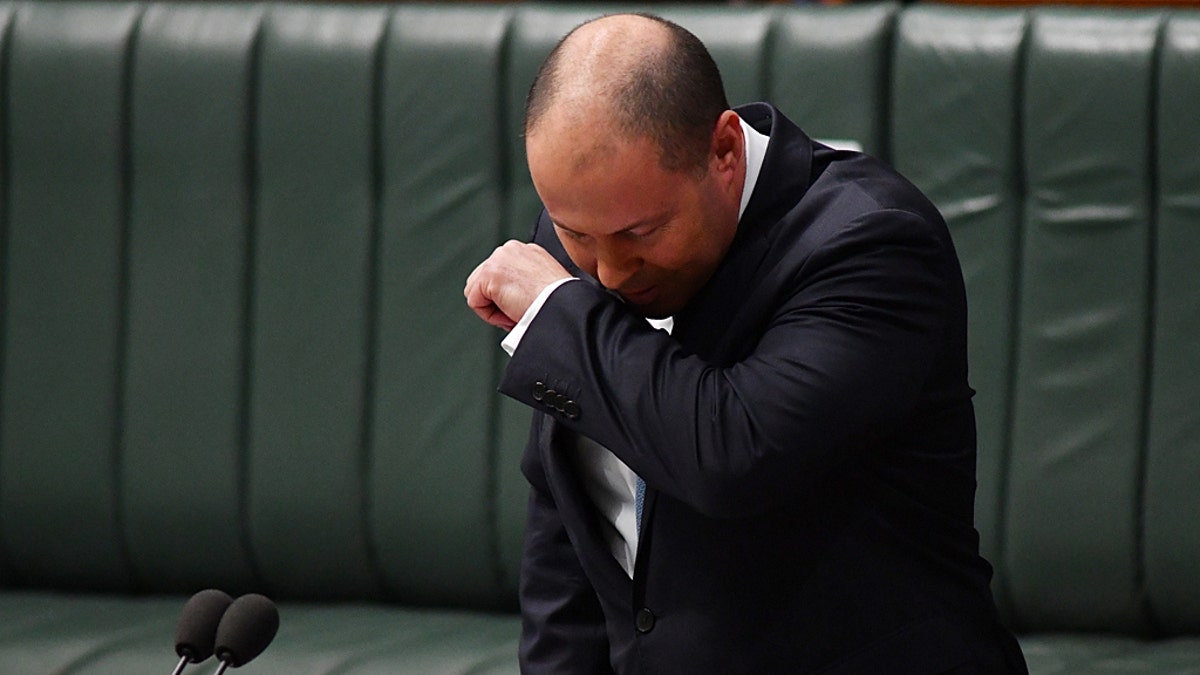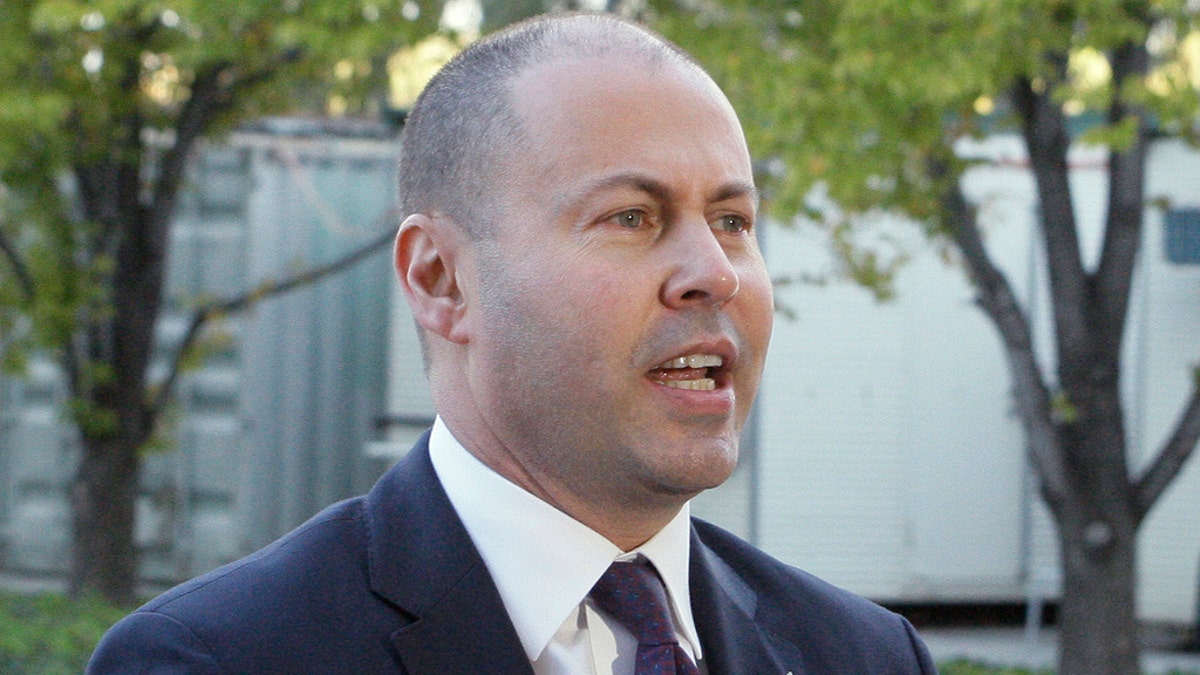New Zealand, Australia see success in COVID-19 fight using strict immigration guidelines during pandemic
Reaction and analysis from Miranda Devine, columnist for The New York Post and Australia's Daily Telegraph.
Get all the latest news on coronavirus and more delivered daily to your inbox. Sign up here.
Australia’s Treasurer Josh Frydenberg has been tested for the coronavirus and has begun to self-isolate awaiting results, after breaking out into coughing fit on Tuesday while he spoke before Parliament.
Frydenberg, 48, was seen on video suffering from a lengthy coughing spell, taking breaks to sip water while he delivered an update on the country’s economic state amid the coronavirus pandemic. Other lawmakers, without masks, are seen listening while sat spaced out in the chamber to observe social distancing.
“Out of an abundance of caution, it was prudent I be tested for COVID-19,” Frydenberg later said in a statement. “Following the receipt of his advice, I immediately left Parliament House to be tested and will await the result in isolation. I expect the result of my test to be provided tomorrow."
CLICK HERE FOR FULL CORONAVIRUS COVERAGE

Treasurer Josh Frydenberg delivers a ministerial statement on the Australian economy in the House of Representatives at Parliament House on May 12, 2020 in Canberra, Australia. (Photo by Sam Mooy/Getty Images)
The treasurer has been tested for COVID-19 once before, upon returning from an overseas trip around the onset of the outbreak. Minister for Home Affairs Peter Dutton was the only senior lawmaker to yield a positive test result after returning from the trip to Washington, D.C., in March, The Guardian reported. He has since recovered.
In his statement before Parliament, Frydenberg said the country faces a “sobering” economic outlook due to the effects of the coronavirus and said it would have the largest deficit in its history when a revised budget is released in October. He added that he expects gross domestic product (GDP) will fall more than 10 percent in the June quarter, representing the biggest fall on record.
The 2020-21 federal budget was due to be released Tuesday. But the government was forced to delay it until it assesses the full economic cost of the coronavirus.
Australia, with an economy about the size of Spain's, is thought to have entered its first recession in three decades this year.
The federal government allocated more than 230 billion Australian dollars ($148 billion) in measures to offset the virus impact, more than half of that aimed at helping eligible employers keep their businesses afloat.
WHICH WORLD LEADERS, US POLITICIANS HAVE TESTED POSITIVE OR BEEN EXPOSED TO THE CORONAVIRUS?
“Given the level of uncertainty, our economic measures provide more than financial relief,” Frydenberg said. “They provide a psychological boost as well.”
Compared to other industrialized nations, Australia has been praised for its progress in flattening the curve by quickly enacting lockdown measures, implementing widespread testing, and giving police authority to enforce restrictions meant to keep people at home. As of Tuesday, the country recorded 6,964 confirmed cases, with just 97 deaths.
Earlier, Frydenberg had forecast unemployment would double to 10 percent. He added that the additional support for employers and employees during the pandemic being sought by the opposition was unlikely to happen.
“Australians know there is no money tree,” Frydenberg said. “What we borrow today, we must repay in the future. Temporary and targeted, the new spending measures were not designed to go forever but to build a bridge to the recovery phase.”

In this April 2, 2019, file photo, Australian Treasurer Josh Frydenberg addresses the media as he arrives at Parliament House in Canberra, Australia. (AP Photo/Rod McGuirk)
CLICK HERE TO GET THE FOX NEWS APP
Frydenberg said the underlying cash deficit at the end of March was A$22.4 billion ($14.4 billion), almost A$10 billion ($6.5. billion) higher than the government forecast in December’s mid-year budget update.
When Frydenberg released the 2019-20 budget in April 2019, he said Australia was “back in the black,” with a A$7.1 billion ($4.6 billion) surplus forecast this financial year. But the government revised its surplus forecast to A$5 billion ($3.2 billion) in December -- before devastating wildfires and the coronavirus hit the Australian economy.
The Associated Press contributed to this report.

